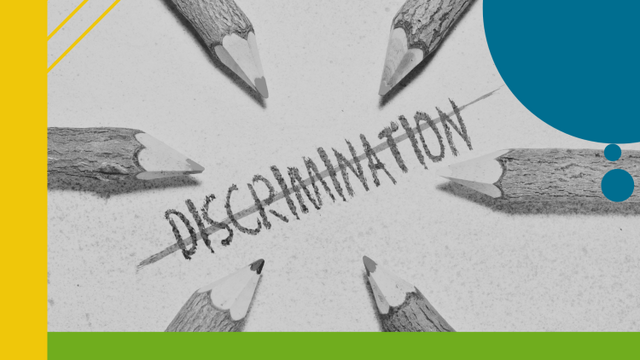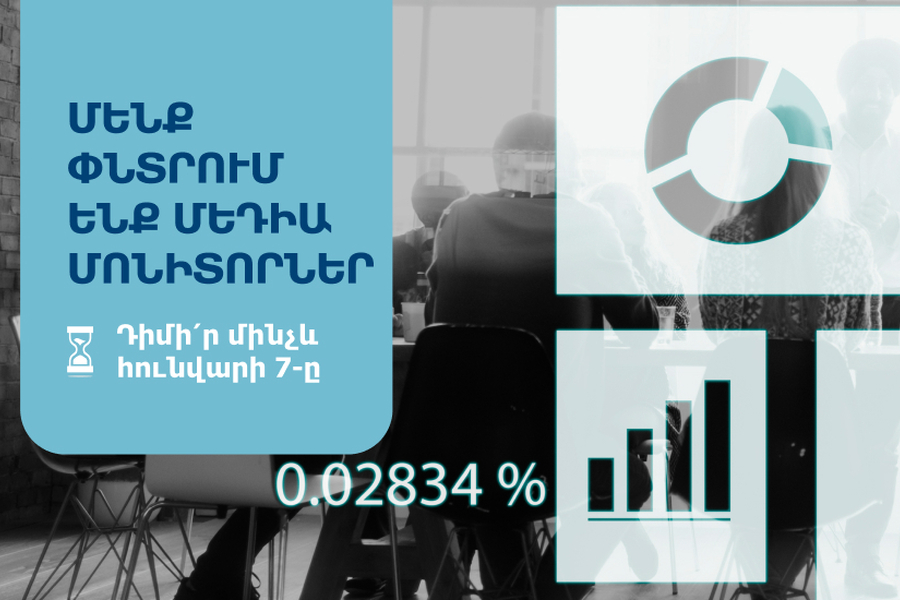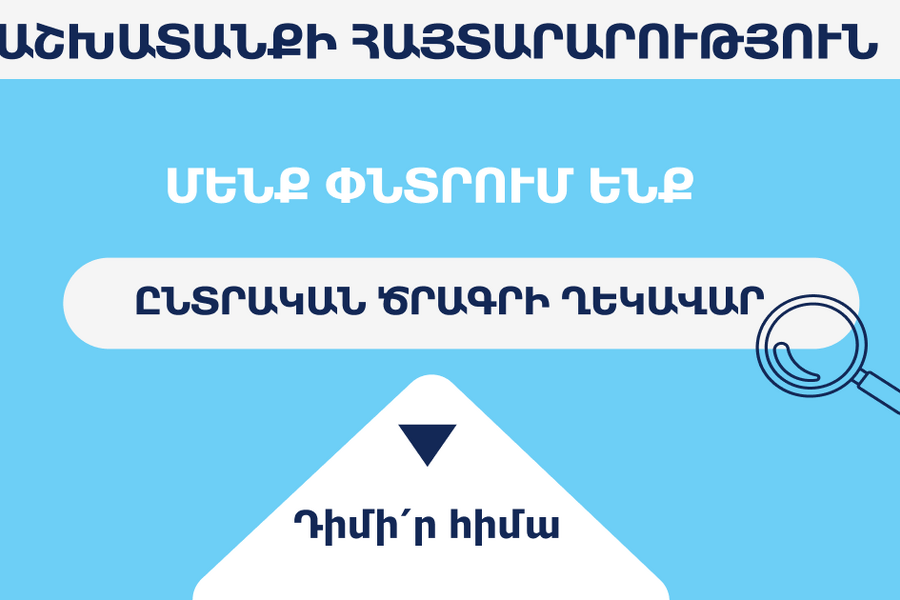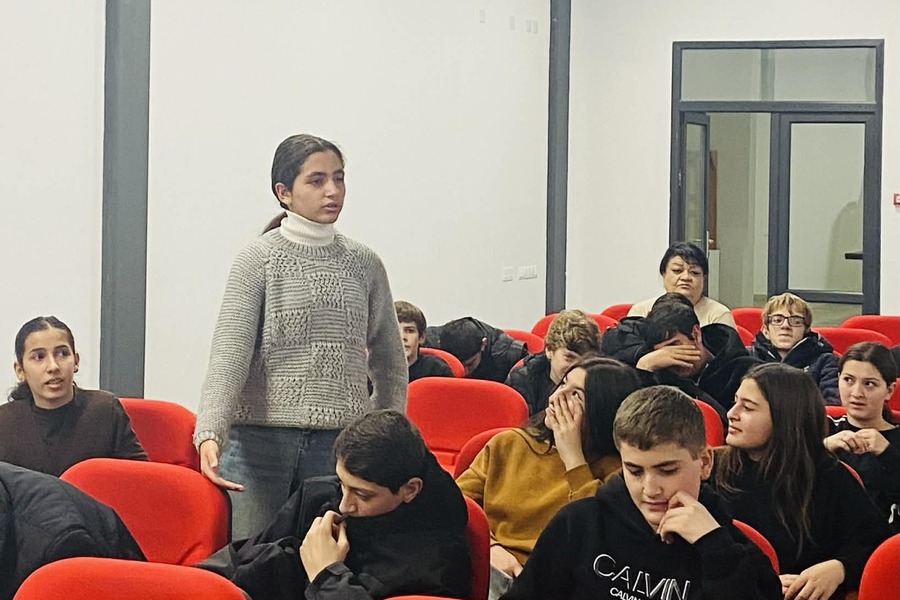The Draft of the New Anti-discrimination Law has been Submitted for Public Discussion.
The Draft Law on Ensuring Equality and Protection Against Discrimination (Draft Law) addresses the legislative gaps related to effective protection against discrimination. It defines various forms of discrimination and stipulates the establishment of an Equality Council, adjunct to the Human Rights Defender’s Office, which will include representatives from CSOs and independent professionals. The draft law sets several protection grounds; however it fails to address the legal protection of persons discriminated on the grounds of sexual orientation and gender identity, one of the most sensitive issues. In addition, the draft law does not define possibilities for CSOs to take legal action in courts (‘actio popularis’) to protect the rights of victims of discrimination.
The anti-discrimination law has been on the government agenda for over a decade․
The Armenian government has been considering the adoption of an anti-discrimination law since 2014. Although the ban on discrimination is stipulated by the Constitution as well as a number of legislative acts, such as the Labour Code, Law on Education, Criminal Code, these legal norms regulate only a limited scope of the broader concept of non-discrimination.
The National Action Plan on Human Rights, adopted in 2014 highlighted the necessity of studying the compatibility of Armenian legislation with international non-discrimination norms and examining the appropriateness of adopting a separate law against discrimination. Several draft laws have been prepared over the years but were not adopted further. The Action Plan for 2023-2025 of the National Strategy on Human Rights Protection, envisioned amending the Draft Law to make it compliant with international standards and presenting it to the National Assembly for adoption by the end of 2024.
The law will contribute to more effective state protection
For many years, CSOs periodically highlighted the need for proper legal and practical safeguards against harassment and discrimination. Specifically, the national legal framework lacks regulations on associative discrimination, harassment, victimisation, affirmative measures, and indirect discrimination. Additionally, existing legislative acts do not provide effective means for legal defence, nor do they provide mechanisms for effective protection against discrimination. The 2023 CSO Meter Armenia Country Report recommended that the government provides adequate protection from harassment and attacks targeting CSO representatives by establishing an anti-discrimination body, issuing public statements, ensuring proper investigation of attacks within a reasonable timeframe, and taking other legislative and practical measures.
The current draft defines discrimination, its types, and legal protection against it. It sets the rules on how the Equality Council is to be formed and operate with the engagement of CSOs. It vests additional powers to the Human Rights Defender’s Office (HRDO) in relation to anti-discrimination measures. In particular, according to the draft, the Equality Council will be established as an advisory body to the HRDO, engaging ten representatives from CSOs and independent professionals, who advocate for the rights and interests of individuals across various protected grounds. The Equality Council will provide advisory support to the HRDO regarding the protection and promotion of equality and protection from discrimination. It will also conduct studies to improve legislation and practices, and offer recommendations to the HRDO.
CSOs have suggested improvements to the draft law
Several discussions on the draft have been organised by both governmental and civil society stakeholders where CSOs have highlighted a number of loopholes. In particular, CSOs and international organisations expressed a concern that the draft law provides only a limited list of protected grounds. Among other protected grounds, the draft includes a reference to “other personal or social circumstances”, which expands the scope of the prohibition of discrimination. However, not explicitly mentioning specific grounds may potentially hinder the effective legal protection of a person or group of persons discriminated on the grounds of "sexual orientation", "gender identity", "health condition", and "family status". The inclusion of these grounds is recommended for example by the UN Committee on Economic, Social and Cultural Rights.
Another highlighted issue is that the Equality Council lacks the authority to make binding decisions on individual cases. While the HRDO is empowered to review complaints and issue decisions, these decisions are advisory in nature, and there are no legal guarantees ensuring their implementation. In addition, HRDO cannot consider complaints against individuals.
Further, the draft law or relevant amendments of other legislation do not cover non-pecuniary damages․ There is a need to further specify the nature and level of sanctions applicable in cases of discrimination.
There is no provision on ‘actio popularis’ as an established mechanism for protection in such cases, which would allow a third party to take action to protect the rights of others or to uphold the principle of equality. Currently, Armenian CSOs are deprived of the right to apply to courts concerning matters of public importance, except for the areas of environmental protection and protection of the rights of people with disabilities.
During the discussions, government representatives mentioned that they consider covering non-pecuniary damages and ‘actio popularis’ through amendments in other legislative acts.
Law is to be adopted this year
CSOs welcome the government’s plan to adopt a separate law on antidiscrimination. They expect their input will be considered in the further revisions of the draft law, and that the law will be adopted by the end of 2024. The adoption of this law will be a significant step forward towards protection against discrimination, and contribute to a better environment for CSOs, particularly those working to protect people from discrimination.
Source։ CSO Meter website






